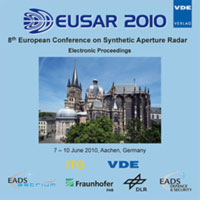General Processing Approach for Bistatic SAR Systems: Description and Performance Analysis
Conference: EUSAR 2010 - 8th European Conference on Synthetic Aperture Radar
06/07/2010 - 06/10/2010 at Aachen, Germany
Proceedings: EUSAR 2010
Pages: 4Language: englishTyp: PDF
Personal VDE Members are entitled to a 10% discount on this title
Authors:
Rodriguez-Cassola, Marc; Prats, Pau; López-Dekker, Paco; Krieger, Gerhard; Moreira, Alberto (Microwaves and Radar Institute, German Aerospace Center (DLR), 82234 Wessling, Germany)
Abstract:
For its intrinsic properties, bistatic SAR processing cannot be approached in the same manner monostatic SAR processing is approached. In general, a bistatic SAR processor is more than a powerful focussing algorithm. Because of the lack of precise time (range) and phase (Doppler) references in non-cooperative (and even cooperative) bistatic systems, a prior software synchronisation step is used to correct the residual errors caused by the use of different clocks. Moreover, depending on the bistatic configuration, different kinds of SAR focussing algorithms can be used. Azimuth-invariant configurations may benefit from the convolution property of the Fourier transform, whereas more general configurations are better suited for efficient time-domain techniques. A discussion on the performance of three Fourier-domain focussing algorithms, range-Doppler, chirp scaling, and range migration, is included in the paper.


